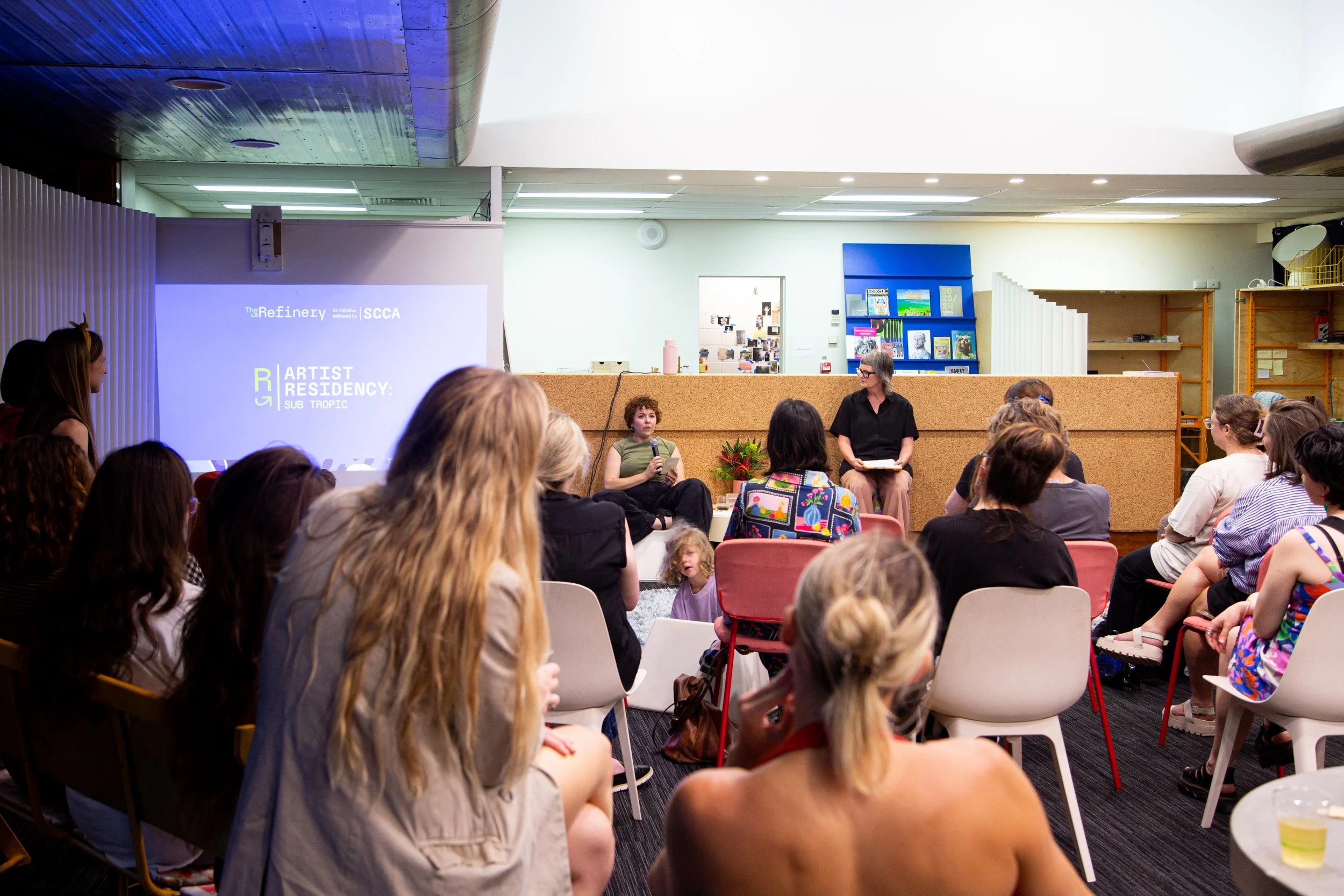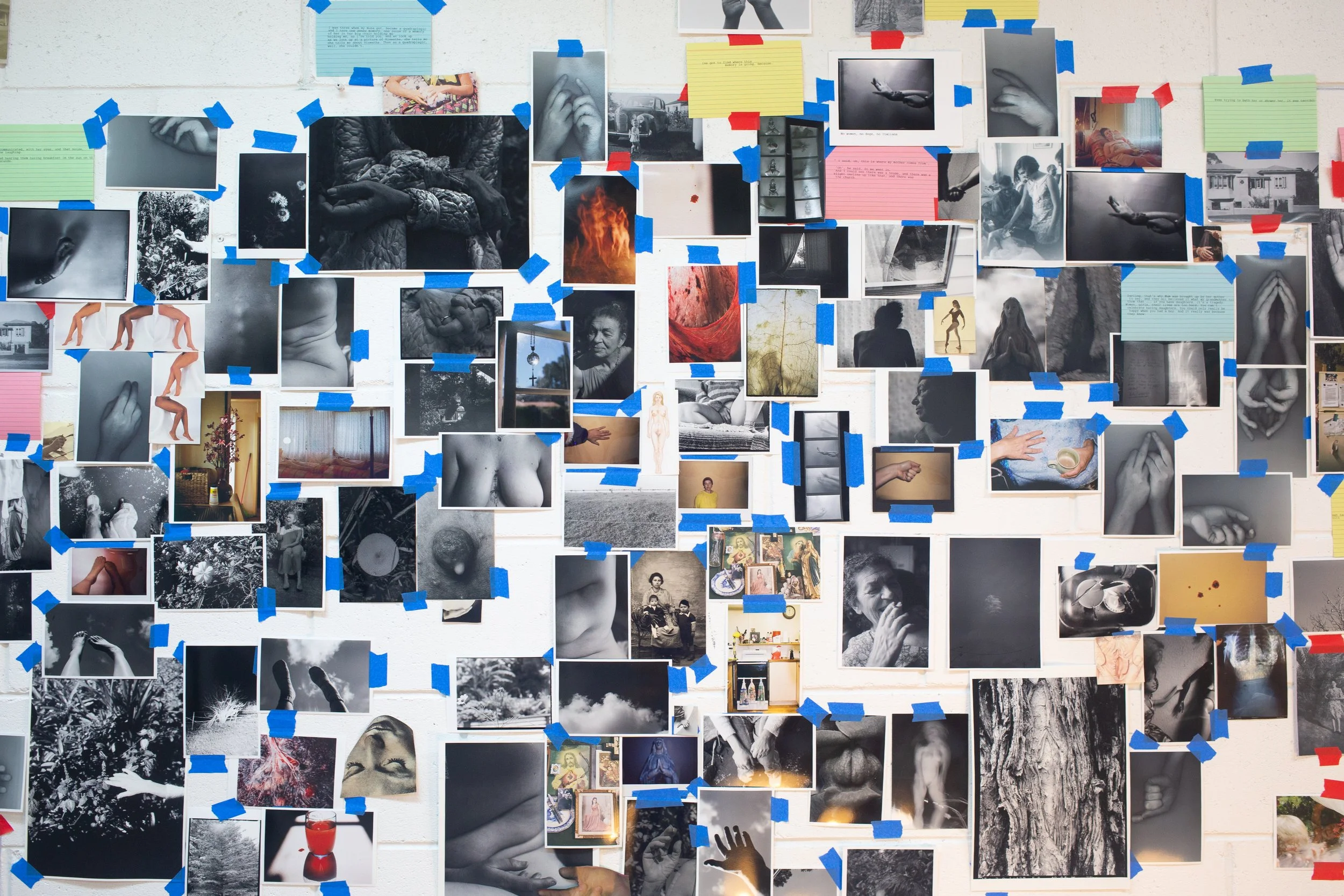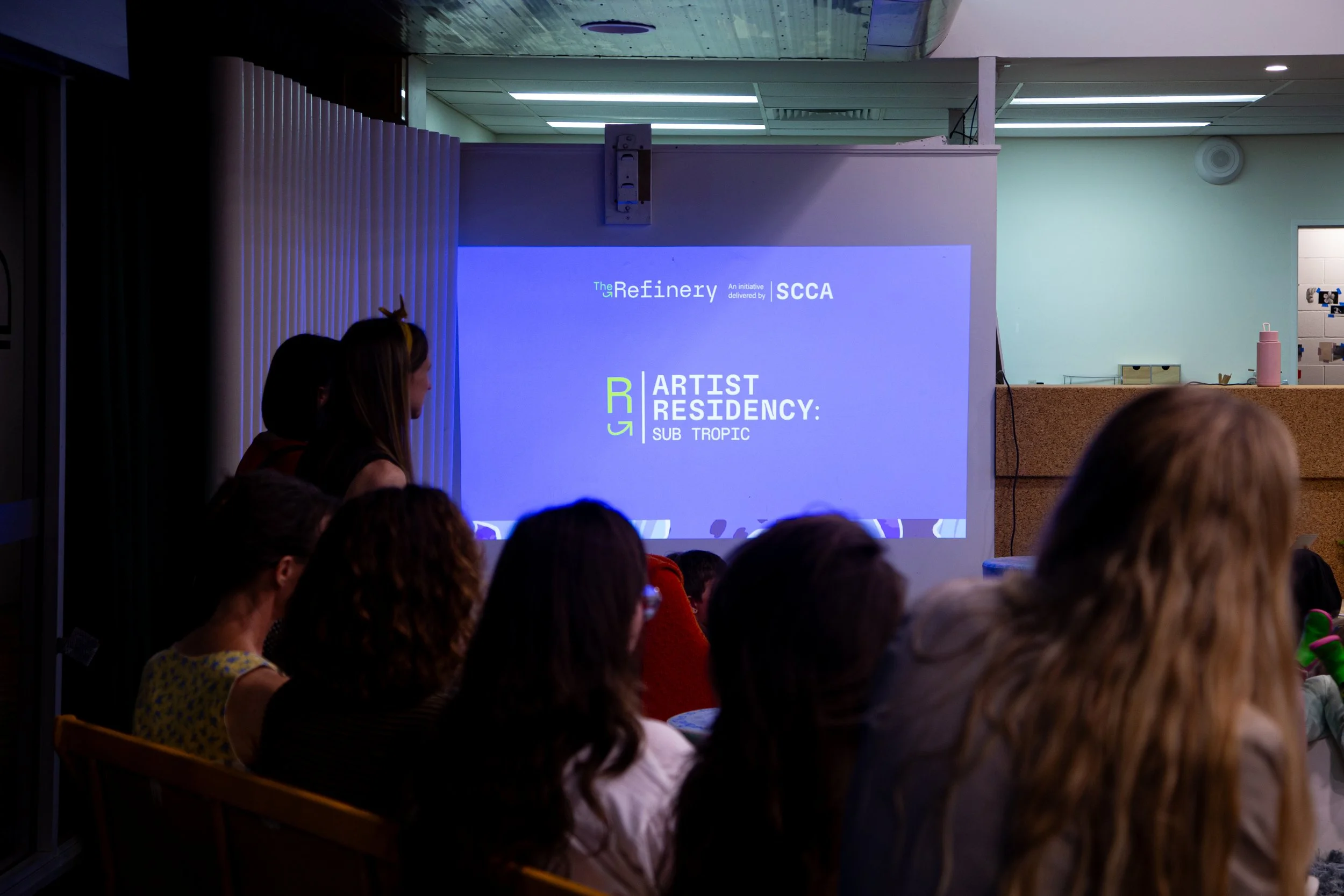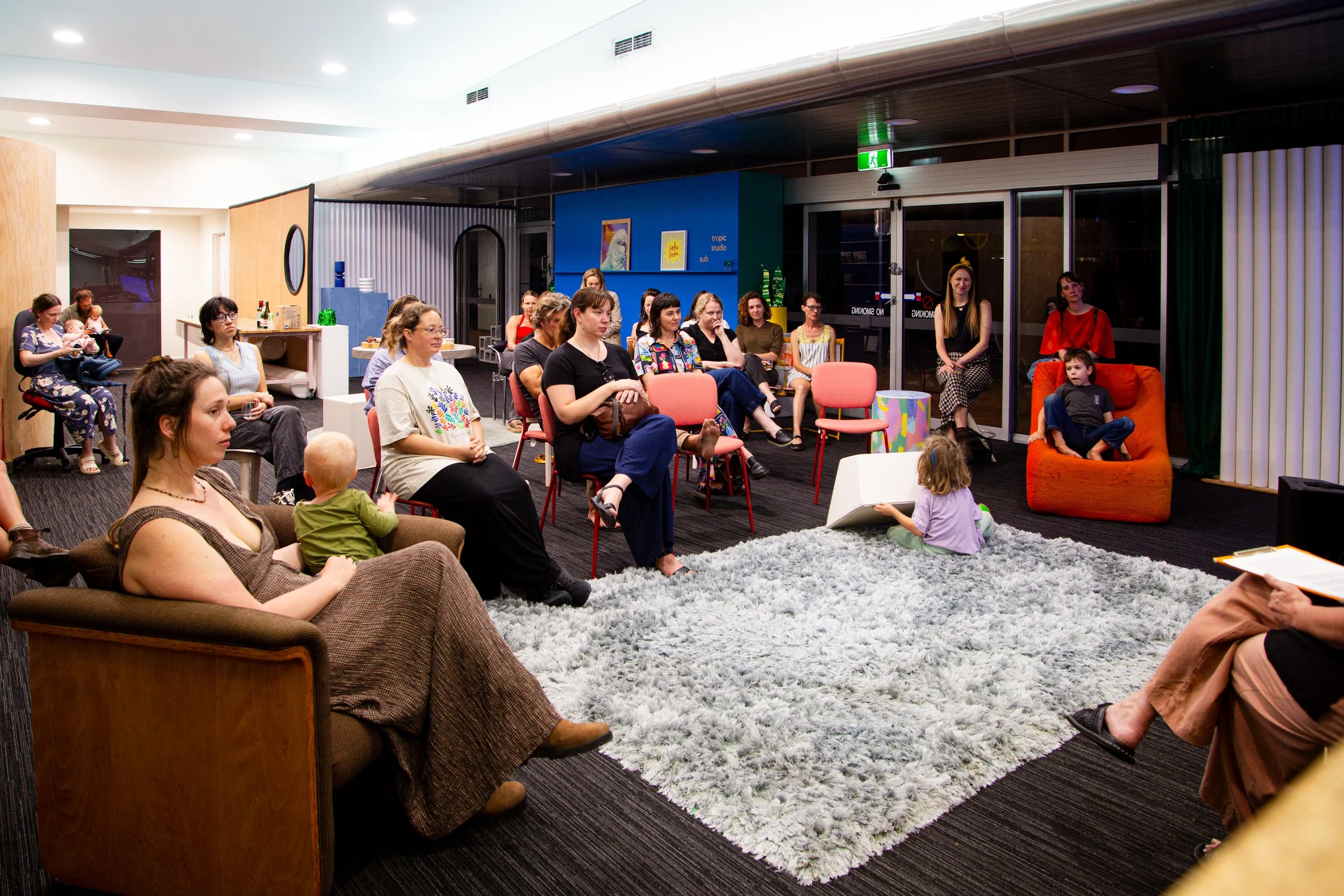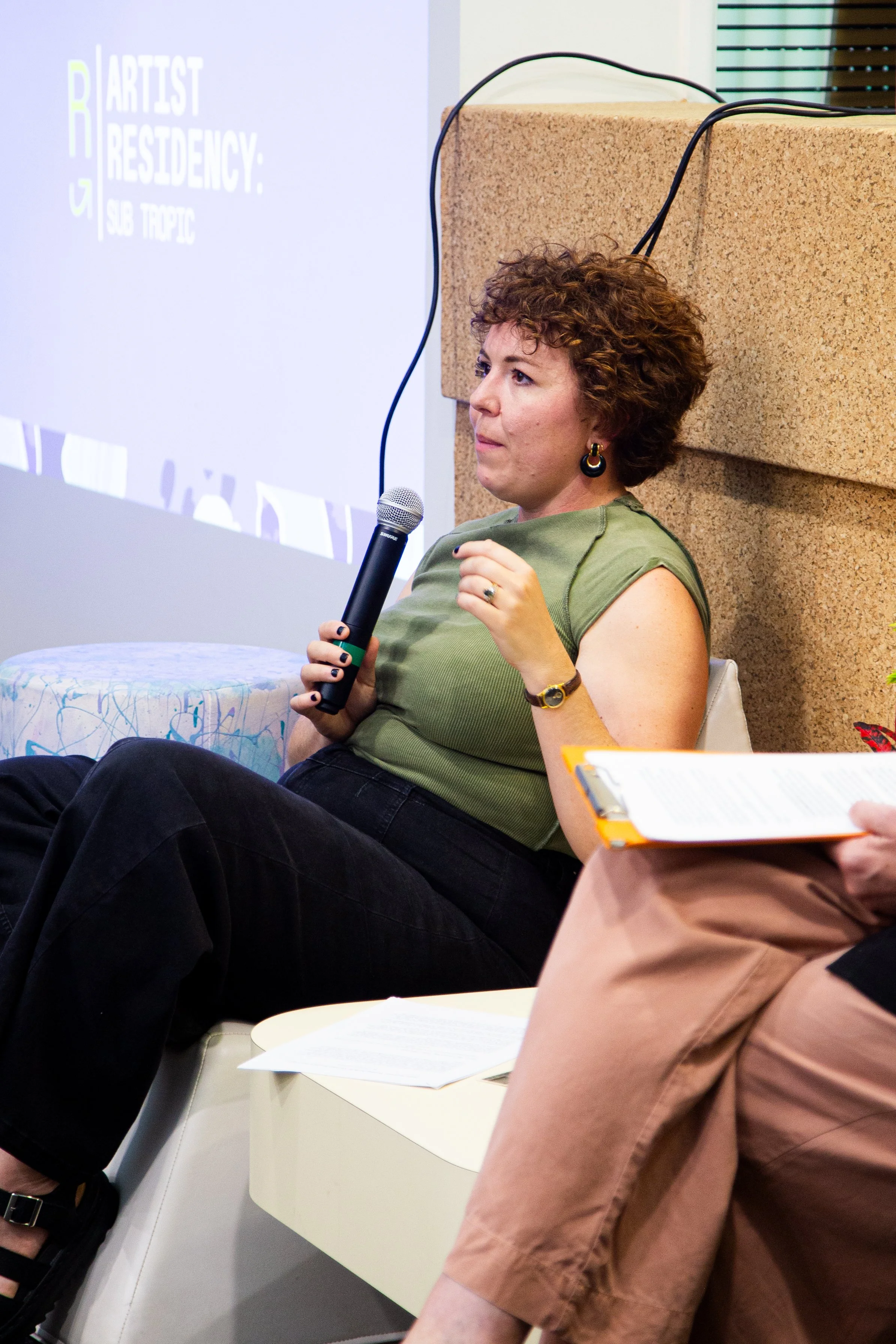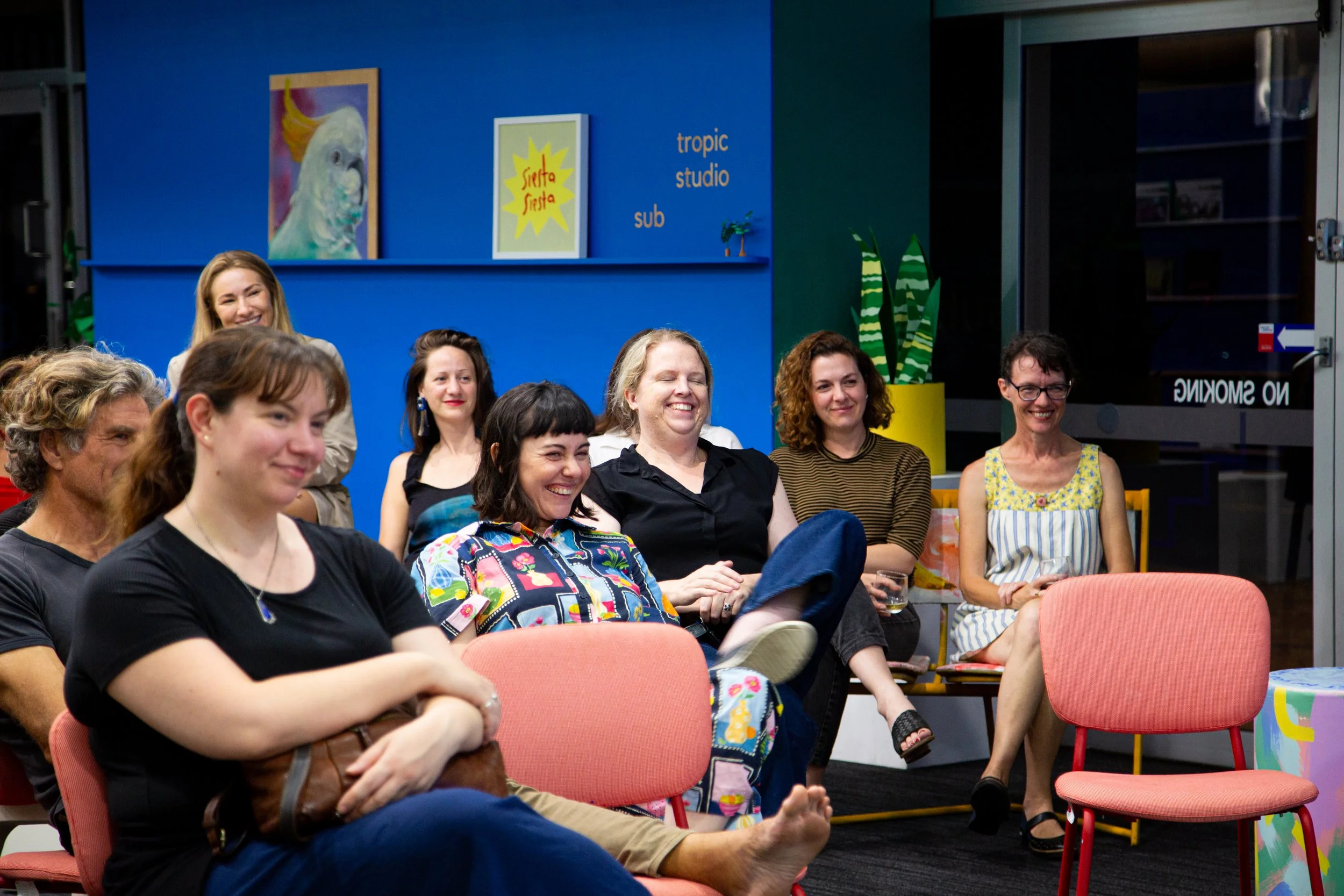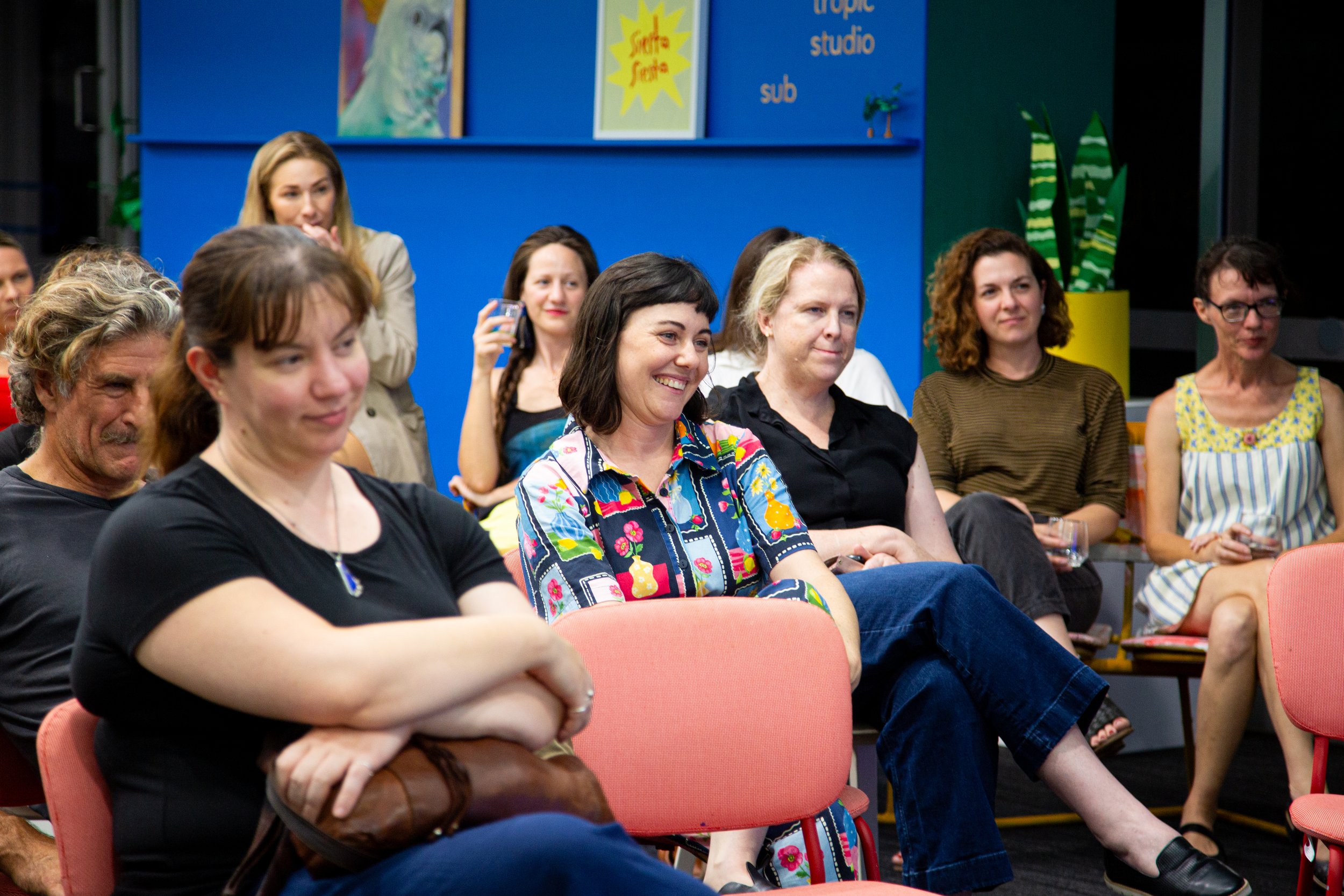Index (Maternal): Julia Rose van Haren’s Work-in-Progress showing at SubTropic
Lens based artist and writer Julia Rose van Haren welcomed an intimate audience into the studio for her Work-in-Progress showing, marking the culmination of her R|Artist Residency: Sub Tropic.
The night was a significant moment in Julia’s evolving creative practice but also the final chapter for the SubTropic Studio residency program in its current premises at the Caloundra Bus Station.
Guests were invited into the studio space to view the work, Index (Maternal), a wall of collaged photographic and collected images accompanied by fragments of text and poetry. Julia’s project opens a window to a familial lineage of women whose stories of tragedy, loss, care, and survival are carried through generations. Index (Maternal) brings together old photographs, oral histories, recalled memories and the artist’s embodied reactions to create a work that maps a new story.
During the artist talk with Toni Wills, SCCA’s Executive Director, Julia spoke to the origins of the work, which started as a single image on a wall and was added to intuitively by the artist from an archive of old images, magazine imagery and additional photographic images taken and processed in the studio. With the focus of the work being the collage as whole, not a single particular image, Julia described her interest being the conversations between the images and how they connect and relate to each other. The placement of juxtaposing images within the ‘in between spaces’ allows for an exploration of not only ancestral histories of the women within her family, but a deeper understanding of the role of connection and care within her practice.
Ever the writer, an accompanying essay written by Julia delves deeper into the theoretical foundations of her work, including the reference to Maggie Nelson’s notion that “the personal does not precede theory; it generates it”. With this foundation in mind, Julia has leant into an embodied process of image and text placement during the creative process, a reflex, an instinct, similar to how one cares for children as a mother or as a carer and a nurse, backed by theory, but with flexibility to be responsive as per the circumstances
Julia shared with the audience the influence of Eve Kosofsky Sedgwick’s concept of texxture — spelled with two x’s — describing the layered interplay between materiality and meaning. As the stories told in the ‘in-between spaces’ of this work dive below the surface, the studio walls also indicate a material tactility - torn paper edges, soft grain images fading at their margins, handwritten notes, typed text on index cards. Each image has an artefact quality, leaning into the curated and ever-expanding conversation about what the maternal body holds and the stories it leaves behind.
Following some audience questions about the alternative processing techniques used and how to embrace ‘interruption’ as a creative muse, Julia closed the evening reading aloud her poem, Things I Know About the Bodies of My Grandmothers - a beautifully written reflection on generational memory, care, and the intimate labour of women’s lives. Visceral and tender, the poem (excerpt below) compliments the conceptual weight of the visual work.
“She had two sons
Two daughters and a son.
A baby too small to breathe,
born in the bedroom alone.
A toddler remembers fetching the towels.
Hands in hot water,
oil, salt, flour.
Blood scrubbed
between finger and thumb with milk,
red lifted from white.
One dies, leaving two small children
on a migrant boat between Sicily and Sydney.
Around the same time my great-grandmother runs away up north with
the man she loves
Later (40 years), he dances
her body bent
from room to room on his feet like a child.
But that comes later.”
As the audience gathered to connect and share refreshments, many wandered back into the studio to take in the work again with the context of the artist talk front of mind. A sense of reverence was noted - for the maternal body, family histories, the creative process, studio-based residency opportunities and for the support of a creative community
Photos by Jamie Davidson.
…
R|Artist Residency: Sub Tropic is a 20-week program designed for early-career creative practitioners, offering studio space, operational support, and profile-building opportunities. Delivered by SCCA as part of The Refinery, and supported by the Queensland Government through Arts Queensland, Sunshine Coast Council through the Regional Arts Development Fund, and the Creative Ecologies Research Cluster at UniSC.
Sign up for updates and be the first to know about our upcoming programs.


